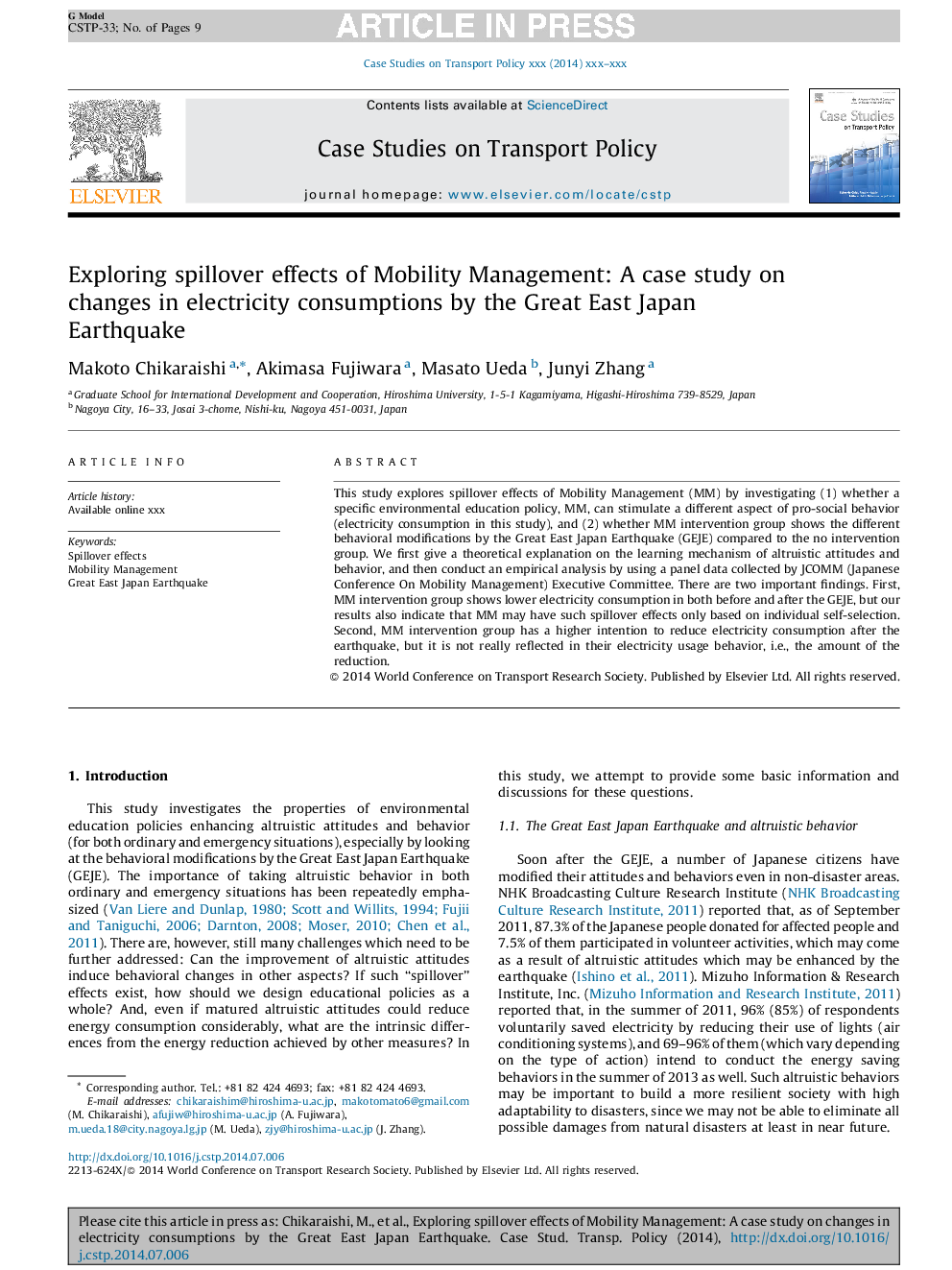| Article ID | Journal | Published Year | Pages | File Type |
|---|---|---|---|---|
| 10283657 | Case Studies on Transport Policy | 2015 | 9 Pages |
Abstract
This study explores spillover effects of Mobility Management (MM) by investigating (1) whether a specific environmental education policy, MM, can stimulate a different aspect of pro-social behavior (electricity consumption in this study), and (2) whether MM intervention group shows the different behavioral modifications by the Great East Japan Earthquake (GEJE) compared to the no intervention group. We first give a theoretical explanation on the learning mechanism of altruistic attitudes and behavior, and then conduct an empirical analysis by using a panel data collected by JCOMM (Japanese Conference On Mobility Management) Executive Committee. There are two important findings. First, MM intervention group shows lower electricity consumption in both before and after the GEJE, but our results also indicate that MM may have such spillover effects only based on individual self-selection. Second, MM intervention group has a higher intention to reduce electricity consumption after the earthquake, but it is not really reflected in their electricity usage behavior, i.e., the amount of the reduction.
Related Topics
Physical Sciences and Engineering
Engineering
Civil and Structural Engineering
Authors
Makoto Chikaraishi, Akimasa Fujiwara, Masato Ueda, Junyi Zhang,
